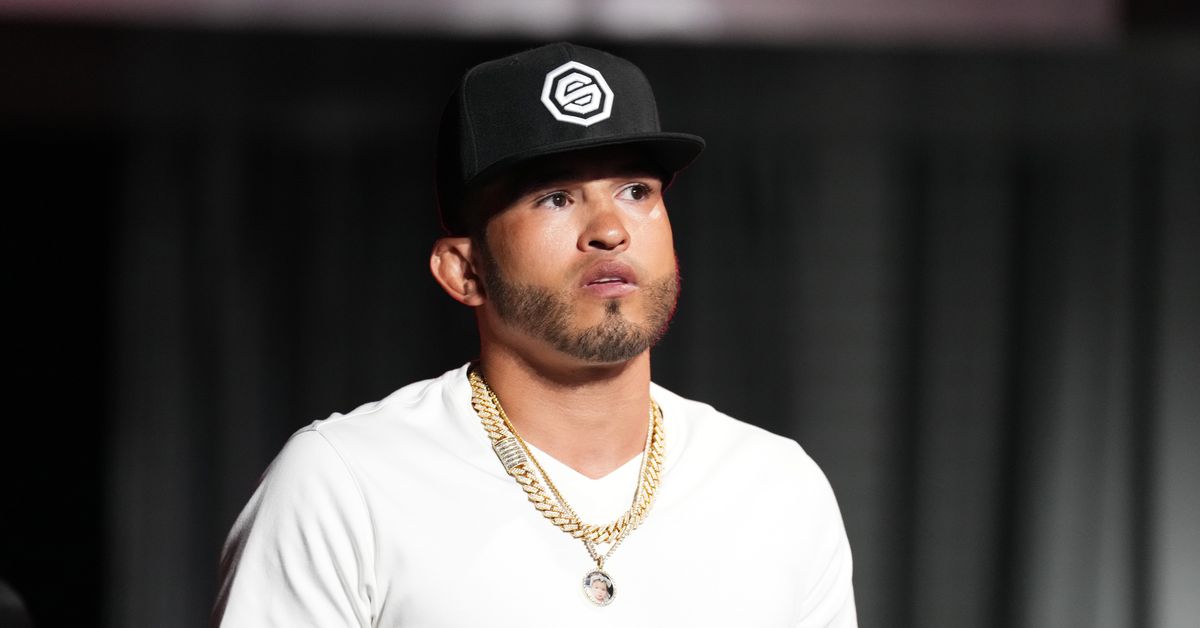Anthony Pettis didn’t need much help becoming a star. The “Showtime” kick and other highlight-reel performances did a lot of the heavy lifting. A Wheaties box made an assist.
At 35, Pettis is a known MMA commodity, getting headlining opportunities out of the gate in his third big-show move in the PFL. On Friday, he rematches Stevie Ray in the tournament-based promotion’s Season 4 playoffs after a setback in their previous outing.
Pettis’ position gives him unique insight into the lifecycle of a fighter’s MMA career. That’s one reason he’s gotten into the management business. It also explains his shock at the choices his clients often make.
“I’ve got fighters that will say no to more money just to get on The Contender Series,” Pettis said Wednesday on The MMA Hour.
The former UFC champ knows the play: Take the short money – $5,000/$5,000 to start in the case of DWCS – for the gamble of pulling off the big highlight-reel win, getting the UFC contract, and testing yourself against the best in the world.
It doesn’t always work out like it did for Pettis, with a gold belt wrapped around his waist. In fact, odds are it won’t. But can Pettis tell his fighters this?
“You can’t really do anything,” he said. “You’re like, ‘Dude, this is guaranteed money – you can still build yourself and build your career – if that’s what makes sense for your career, then go to that.’ But I think eventually, once the general public stops pushing that on fighters, then we’ll see fighters making different decisions.”
There’s a deeper psychological force at play when a fighter chooses the UFC over other competitors, Pettis said. It’s as much about what it means to be a UFC fighter as it is to be a UFC fighter, at least where the public is concerned.
To Pettis, who’s been to the top of the UFC food chain, that’s not the most accurate picture of the truth, and it’s not always the one that supports a fighter’s best long-term interests, financial or otherwise.
“It’s weird,” he said. “I think the fame that comes with fighting in the UFC, these fighters are addicted to that. They want that more than the guarantee. They’re like, I’m willing to risk not getting paid a certain amount to get the fame that comes with it and the recognition that comes with fighting on a UFC fight card.
“The general public looks at the UFC like it’s the best place to fight, it’s the only place to fight. But as fighters, you’re supposed to take care of yourself. Most guys don’t get to fight as long as I got to fight. So I got to see all the phases of the MMA chain, from when the UFC got bought out to the WME, how those changes happened.
“So I think fighters should definitely test the market. And there’s so many more organizations coming out now that are paying good guys. Eagle FC, Khabib’s show, they’re paying guys good money.”
Pettis did just that and found himself in the PFL, taking his own gamble to capture a total of $1 million by winning the Season 4 tournament. He’s had more than a few bumps on that road, losing three of four bouts in the new promotion. Time, the most valuable commodity in a fighter’s career, probably didn’t make the best assist on that front.
But on the financial front, Pettis believes he made the best choice possible, and he believes others should think long-term when it comes to making business decisions that may impact their lives.


